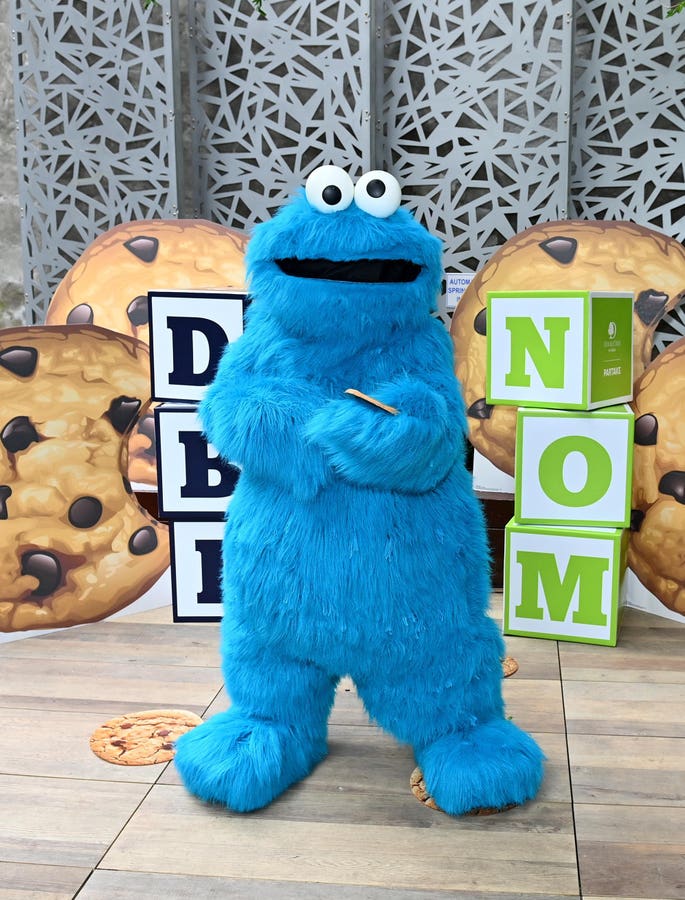(Photo by Roy Rochlin/Getty Images for DoubleTree by Hilton)
Getty Images for DoubleTree by Hilton
Here are five things that happened in tech this week and how they might affect your business. Did you miss anything?
1 – What marketers need to know about Google’s “surprising, but not shocking” cookie shift.
Google’s decision to phase out third-party cookies in 2020 sparked backlash from advertisers and led to lengthy disputes and delays. Now, Google has reversed its decision, allowing users to “accept” or “reject” cookies. This is another way to maintain user privacy, so advertisers are waiting to see how it works. As such, the company is encouraging advertisers to “not rely too heavily on cookies over time,” The Wall Street Journal reports. (Source: The Wall Street Journal)
Why this matters to your business:
Whether you agree or disagree, at least we now have a clear answer. For years, Google has been threatening to phase out cookies in response to privacy concerns, which caused a lot of anxiety among marketers and business owners. Their delays only made the situation worse. Now, at least for the time being, they are backing away from the idea.
2 – Visa: AI helped block 80 million fraudulent transactions in 2023.
Visa’s AI technology helped block 80 million fraudulent transactions worth $40 billion in 2023. Over the past five years, Visa has invested more than $10 billion in technology, with $500 million of that allocated to AI and data infrastructure. AI tools have significantly improved fraud detection, with initiatives such as its AI-powered real-time fraud detection service in the UK and solutions to combat enumeration attacks. These efforts are part of Visa’s broader strategy to strengthen security across the payments ecosystem. (Source: PYMNTS)
Why this matters to your business:
AI has been in the headlines for the past few years, and the AI-powered algorithms that Visa and other financial services use to detect trends and fraudulent activity aren’t new. But they’re getting better. The good news is that these tools can help lower financing costs for business owners.
3 – Microsoft wants you to pay $300 a year for AI art in Word.
PCWorld’s Mark Hachman reported on Microsoft’s plans to integrate Microsoft Designer’s AI art features into Word and PowerPoint. The new feature will be available for a $300 annual subscription fee. But as Hachman points out, “you can have Microsoft Copilot draw an AI-generated image of strawberry pie for free.” Microsoft is adding $20 per month to its Microsoft 365 subscription ($6.99 for individuals, $9.99 for families) to use Word’s AI art tools. (Source: PCWorld)
Why this matters to your business:
Microsoft’s current AI product, Copilot, is of poor quality, unreliable, and inaccurate, and I’m not going to pay a cent for it — at least not this year.
4 – Events like the Microsoft outage are why a tech writer brings these five gadgets with him every time he hops on a plane.
The CrowdStrike incident, which wreaked havoc on Windows systems around the world, has especially wreaked havoc on the aviation industry. Kizmanzi Constable listed the five essentials he always packs when flying: a reliable mobile router for WiFi, a portable charger for your devices, a mini power strip, a universal adapter, and a laptop stand. Constable gives specific recommendations for each, asserting that “with the right technology, you can stay entertained, informed, and productive no matter where you are in the world.” (Source: CNET)
Why this matters to your business:
While that’s good advice for frequent business travelers, it’s hard to say how much comfort these tools provided Delta passengers over the past week.
5 – The alcoholic beverage industry is using AI more than you might think.
The alcohol and beverage industry is increasingly using AI to enhance flavor profiles and address challenges posed by extreme weather. Companies such as Japanese brewer Suntory and British company Diageo are using AI to develop RTD (ready-to-drink) cocktails that replicate the quality of drinks made by bartenders. Rising temperatures have industry players exploring alternative ways to produce quality products. “AI is helping us become more resilient,” said Will Drayton, director of sustainability and science at Treasury Wine Estates. (Source: Fast Company)
Why this matters to your business:
Sounds good, but how? Recreate a drink? Do you need AI to do that? These companies are keeping their proprietary use of AI secret. Many large companies with AI systems do the same.

